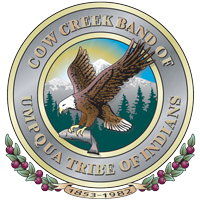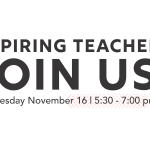Tribal Members Talk Lamprey and Takelma for NPR Podcast
*This article is also featured in the December edition of the Cow Creek Tribal Newsletter*
Two Cow Creek Tribal members were recently featured on a well-known national podcast, promoting Cow Creek culture and language to millions of ears, while also stressing the ecological importance of an endangered regional river species.
Kelly Coates, Water and Environmental Resources Program Manager for the Tribe, and Elizabeth Bryant, Takelma Language Teacher Learner, participated in an episode for the National Public Radio (NPR) science podcast Short Wave about the Pacific lamprey.
Coates happens to be an expert on lamprey; she’s the Tribal Co-Chair of the Pacific Lamprey Conservation Initiative (PLCI), a working partnership among Northwest Tribes, state agencies and U.S. Fish and Wildlife to conserve and study the lamprey and its delicate role in the ecosystem. It’s that detailed knowledge of the ancient fish species (450 million years old!) that led NPR to Coates, who then brought in Bryant to include the historical Cow Creek language.
“The Short Wave staff were very excited about learning all they could about Pacific lamprey and capturing the Tribal perspective in [the] podcast,” said Coates.
Short Wave made Cow Creek culture front and center at the beginning of the episode. “We want to start by sharing a story from the Cow Creek Band of the Umpqua Tribe of Indians,” the podcast begins, and Coates is heard telling the legend of how the lamprey bet and lost his bones to the salmon in a game.
Visit the new Cultural Resources page to read the story of the lamprey and the salmon (login required to access Tribal content)
After Coates tells the story, Bryant’s voice is heard speaking Takelma while the hosts explain how lamprey play a significant role in Cow Creek and other Northwest Tribal cultures.
“Lamprey was our first food. The lamprey was our medicine. The lamprey helped us to survive,” is the translation of Takelma that Bryant spoke for the podcast.
The Takelma word for lamprey is “xtáan” pronounced [x-DAHN]. Visit the Takelma Language page of the Cow Creek Education website to learn more.
“I was able to record the script into my phone and submit it [to the podcast producers],” Bryant recalled about the process. “Because it wasn’t in a live interview, I has the opportunity to re-record myself until it sounded the way I wanted it to.”
The podcast continues on to explore the life cycle of the lamprey, how the PLCI came together and why conservation efforts are growing stronger in the recent years, especially among regional Tribes. Coates says it also shows how Tribes are a driving force behind lamprey research and getting results that impact the environment and ecological system.
“I hope people understand how the work that PLCI does is a model in successful partnerships and coordination. Lamprey have a way of bringing people together to make good things happen,” she said.
“Everyone should realize that there is lamprey in the water that they have probably swam with,” said Bryant.
An Ode to the Pacific Lamprey: Listen to the NPR Short Wave podcast, featuring Cow Creek Tribal members Kelly Coates and Elizabeth Bryant





